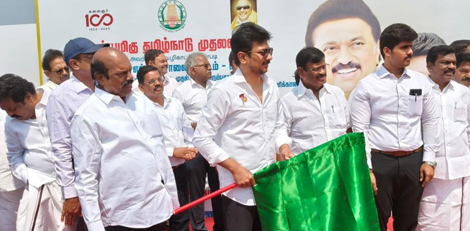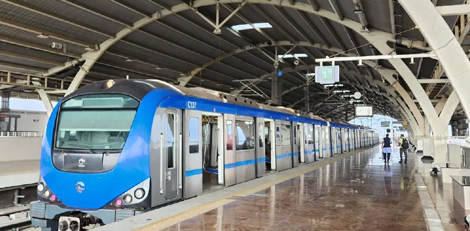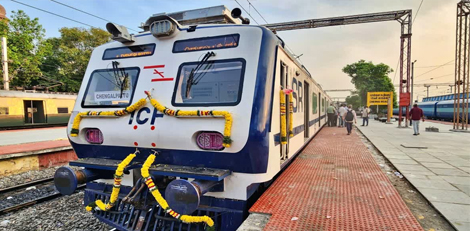Udhayanidhi Stalin Inaugurates Phase III of Chennai Peripheral Ring Road Project

In a significant step toward enhancing Chennai’s transportation infrastructure, Tamil Nadu Deputy Chief Minister Udhayanidhi Stalin on Thursday inaugurated the construction of Phase III of the Chennai Peripheral Ring Road (CPRR) project. The groundbreaking ceremony took place at Tiruvallur, with Highways Minister E.V. Velu and other senior officials in attendance.
The CPRR is a major six-lane, access-controlled highway project aimed at easing freight traffic and improving connectivity between southern Tamil Nadu and major ports like Ennore and Kattupalli, bypassing congested city routes. The entire stretch spans 132.87 km, with an estimated project cost of ₹16,212 crore, funded by the World Bank and other international agencies.
Details of Phase III
The newly launched Phase III covers a 30.1 km stretch from Tiruvallur Bypass to Sriperumbudur, and includes two-lane service roads on both sides. The construction is expected to cost ₹2,689.74 crore and will be carried out in three segments:
- Thiruvallur Bypass to Venkathur (10.4 km) – ₹1,133.2 crore
- Venkathur to Chengadu (10 km) – ₹593.27 crore
- Chengadu to Sriperumbudur (9.7 km) – ₹963.27 crore
This phase will feature two major flyovers, one road overbridge, and two significant bridges.
Progress of Other Phases
The CPRR project is divided into five phases:
Phase I (Ennore Port to Thatchur – 25.4 km): Undertaken by Tamil Nadu Road Development Company in 2021 at a cost of ₹4,290 crore; 35% of the work is complete.
Phase II (Thatchur to Tiruvallur Bypass): Under construction at a cost of ₹2,259 crore, with around 68% progress.
Phase IV (Sriperumbudur to SP Koil – 23.5 km): Already completed using state government funds. A Detailed Project Report (DPR) is being prepared to upgrade this stretch into an access-controlled highway, including fencing and new infrastructure like underpasses and bridges.
Phase V (SP Koil to Poonjeri): Land acquisition is currently in progress, with some encroachments on government land being addressed.
Key Objectives and Impact
The CPRR, once fully completed, is expected to revolutionize logistics by enabling faster transportation of goods from industrial hubs in southern Tamil Nadu to ports in the north, and further into Andhra Pradesh. The highway’s access-controlled design and service roads will improve safety and reduce congestion. Notably, only tolled vehicles will be permitted to use the main six-lane road, while free service roads will be available on both sides for local traffic.
According to highway department officials, surveys are ongoing to determine where additional bridges and underpasses may be required along the roroute, particularly in upgraded segments.
The inauguration of Phase III marks another milestone in Tamil Nadu’s infrastructure development, reinforcing the state government’s commitment to boosting economic growth and regional connectivity through world-class road networks.







